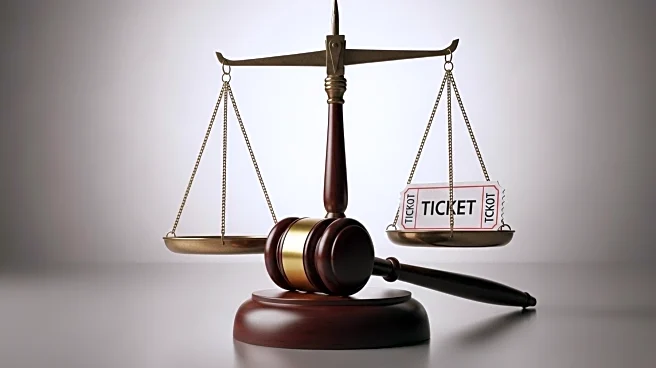What's Happening?
The Federal Trade Commission (FTC) and attorneys general from seven states, including Illinois, have filed a lawsuit against Ticketmaster and its parent company, Live Nation Entertainment. The lawsuit alleges that Ticketmaster has been coordinating with ticket brokers to allow bulk purchases of tickets, despite having rules to limit such actions. This practice allegedly enables both brokers and Ticketmaster to profit from reselling tickets at higher prices. The complaint highlights instances where brokers purchased large quantities of tickets, such as 772 tickets for a Coldplay concert, and resold them for significant profits. The lawsuit also accuses Ticketmaster of advertising lower ticket prices and then adding mandatory fees, which can increase the cost by up to 44%. The FTC claims that Ticketmaster is aware of brokers creating multiple accounts to bypass ticket limits and has turned a blind eye to these violations. The lawsuit seeks to address these practices and enforce competition laws in the ticketing industry.
Why It's Important?
This lawsuit is significant as it addresses longstanding concerns about the ticketing industry's practices, particularly the role of Ticketmaster and Live Nation in controlling ticket sales. The alleged coordination with brokers and the imposition of hidden fees have been criticized for inflating ticket prices and limiting access for regular consumers. If successful, the lawsuit could lead to changes in how tickets are sold and priced, potentially benefiting consumers by reducing costs and increasing transparency. The case also highlights the broader issue of monopolistic practices in the entertainment industry, which could have implications for other sectors where similar concerns exist.
What's Next?
The lawsuit will proceed in the U.S. District Court for the Central District of California, where the FTC and state attorneys general will present their case against Ticketmaster and Live Nation. The companies have not yet responded to the allegations, but their defense and any potential settlement or court ruling could impact their business practices. The outcome of this case may influence future regulatory actions and policies aimed at ensuring fair competition in the ticketing industry.











